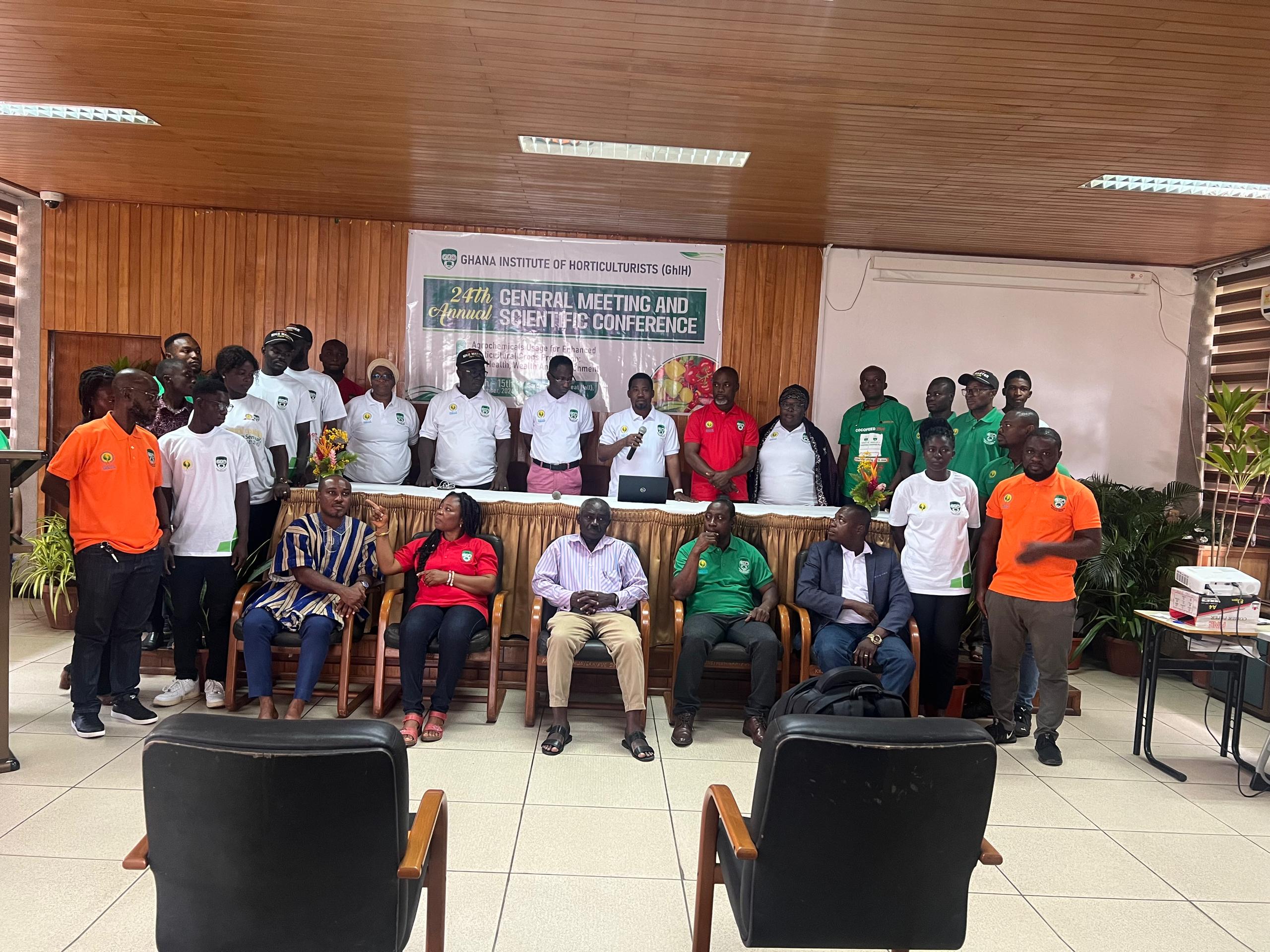The Ghana Institute of Horticulturists (GhIH) has urged the government to develop crop-specific policies for tomatoes, onions, and carrots to boost local production, reduce importation, and create jobs for Ghanaians.
This appeal was made during the Institute’s 24th Annual General Meeting and Scientific Conference, held from November 13–15, 2024, at the Great Hall of Kwame Nkrumah University of Science and Technology (KNUST), Kumasi.
“We call on Government to develop crop-specific policies for tomato, onion, and carrots to increase their production and processing to reduce their importation into the country,” the Institute stated. It added that such measures would create significant employment opportunities, especially for women and youth, while also enhancing food security.
Ghana imports tomatoes from Burkina Faso, the Netherlands, Morocco, Switzerland, and France. Trade data from the Ghana Vegetable Producers and Exporters Association (Ghana Vegetables) indicate that annual tomato import from neighbouring Burkina Faso has hit a staggering US$400million from an estimated US$99.5million in 2018.
In 2021, Ghana imported $33.1m worth of in onions, becoming the world’s 42nd largest importer. In the same year, onions were Ghana’s 132nd most imported product.
Ghana imports onions primarily from: Niger ($21.7M), China ($8.83M), Netherlands ($928k), Morocco ($695k), and Nigeria ($550k).
The president of Ghana Vegetables, Dr. Felix Kamassah, however attributed the rising imports and slump in local production to cost of fertilizer and quality seeds, and the lack of mechanisation and machinery. There have been several calls to the relevant authorities to address the challenges, however, they still persist.
Ghana faces intense hike in prices of these commodities whenever there is a shortage, impacting the economic wellbeing of citizens.
Protecting the Environment and Promoting Food Safety
The conference, themed “Agrochemicals Usage for Enhanced Horticultural Crops Production: Our Health, Wealth and Environment,” also highlighted the urgent need to address environmental degradation caused by activities like illegal mining (galamsey) and misuse of agrochemicals. The Institute warned that these practices threaten food security, public health, and Ghana’s natural resources.
The GhIH urged the government to enforce policies to protect water bodies, farmlands, and forests, stating, “Government should engage strongly with local authorities to check the menace associated with agrochemicals and other destructive activities.”

Strengthening Regulatory Agencies
The Institute also called for increased funding and staffing for key regulatory bodies, including the Environmental Protection Agency (EPA), Food and Drugs Authority (FDA), and the Ministry of Food and Agriculture (MoFA). It argued that these agencies are critical to regulating agrochemical usage and ensuring food safety standards are upheld.
Revitalizing Urban Landscapes
The GhIH expressed concern over the neglect of parks, road medians, and urban landscapes, which play a vital role in improving environmental health. “We draw the attention of Government to the growing neglect in the maintenance of parks and medians of city roads, which are critical for improving urban environmental health,” it said, calling for partnerships between the government and private entities to address the issue.
Supporting Research and Representation
To ensure sustainable development in the horticulture sector, the Institute emphasized the need for increased funding for research on agrochemical usage and food safety. It also appealed for representation on the Horticultural Advisory Board of MoFA, stating, “Having GhIH representatives on the board will strengthen horticultural policies and production strategies.”
Collaboration for Growth
The Institute reiterated its commitment to collaborating with government and other stakeholders to enhance Ghana’s horticulture sector for increased food security, improved health, and economic growth.
The event, supported by sponsors including Chemico Agrochemicals, Rainbow Agrosciences, and BioEnsure Limited, brought together stakeholders from the horticulture industry to address challenges and propose solutions for a sustainable future.








